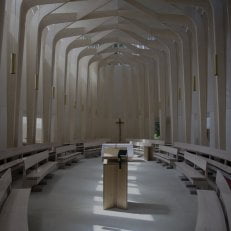Culture Recovery Fund Emergency Resource Support
With an overall budget of £20 million, the recently opened Arts Council Culture Recovery Fund: Emergency Resource Support programme is specifically designed to support culturally significant organisations (in England) which were financially sustainable before the COVID-19 pandemic but are now at imminent risk of failure. The emphasis here seems to be very much on survival.
Compared to previous rounds of Recovery funding, 20 million doesn’t sound very much. The first round of Culture Recovery Fund in summer 2020 quoted a total grant capacity of 500 million and the second round in January 2021 had a budget of 250 million. The 20 million might feel like the scrapings from the bottom of the Arts Council barrel, but it might just save one or two arts companies from financial calamity.
To be successful, as expected there are quite a lot of hoops to jump through. Applicants must run the by now familiar tightrope of demonstrating prudent financial management whilst pleading abject poverty at the same time. This can be a difficult balance to strike, in particular when you’ve been in receipt of a CRF grant before. A cashflow needs to be presented that can show that the company will hit cash insolvency within 12 weeks if no further support is forthcoming, whilst having exhausted all other options for increasing resilience. Under “all other options” ACE includes government relief schemes, affordable lending, viable alternative options for commercial, contributed, and philanthropic income and using own resources. A risky proposition for managers having to weigh up drawing down their reserves in return for a bail-out which is not guaranteed!
Different from previous Culture Recovery Fund strands, the Emergency Resource Support programme is subject to a 2-stage application. In Stage 1 applicants will need to seek “permission to apply”. The form which includes a cash flow forecast template, is really a pre-application and looks designed to quickly and efficiently eliminate ineligible organisations. Those who are granted permission to apply, need to submit their application within 5 days. As this is a very short window, it would be advisable for applicants to have at least the bulk of the main application written and ready to go before they submit their permission to apply.
If Permission to Apply is not granted, you can try again, but 2 strikes and you’re out! You may only request permission to apply for Emergency Resource Support a maximum of 2 times.
When the “Permission to Apply” hurdle is successfully negotiated, the main application will focus on:
- Your plans for financial viability – including a number of mandatory attachments
- Cultural significance – your significance within the national/international cultural sector
- Opening up access – your plans for improving the diversity in your organisation, visitors, participants, workforce, governance and your wider audience base.
This is a rolling programme and applications can be submitted between 15 July and 14 October 2021. Deadline for ‘Permission to Apply’ form is 30 September 2021
A few further pointers:
- Grant sizes available are between £25,000 and £3 million
- This is another fast-paced CRF programme with decisions communicated within six weeks.
- Applicants can apply for funding to cover shortfalls between applicants’ operating costs and income for a period up to a point where they can demonstrate a return to financial viability, however that point can’t be later than 31 December 2021.
- Grants can support a range of costs, including staff salaries and fixed/operational costs, projects that are essential to continued operations, COVID-related debt, one-off costs arising from organisational development and one-off building/capital expenditure.
- If you have previously received a grant from Culture Recovery Fund, there are cumulative limits on how much you can apply to this programme for: Maximum £4 million across all rounds for non-profit organisations and max £1,5 million across all rounds for commercial organisations.
- Applications are open to cultural organisations in England that are properly constituted with a governing document. The kinds of organisations that are eligible to apply include: Private companies, Community interest companies (CICs), Charitable incorporated organisations (CIOs) Charitable companies or charitable trusts, limited liability partnerships, Royal Charter bodies, statutory bodies, some types of partnerships and other public bodies including universities and museums.
- For this programme, the Arts Council defines ‘cultural’ as sitting within the remit of Arts Council England. Its supported artforms or disciplines are music, theatre, dance, combined arts, visual arts, museums, or literature.
- Comedy venues are also eligible for this fund.





